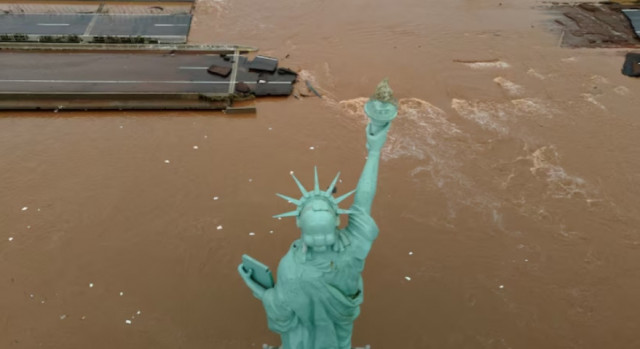Rains in southern Brazil kill at least 39, some 70 still missing
Streets become rivers, roads and bridges destroyed in several towns

Heavy rains battering Brazil's southernmost state of Rio Grande do Sul have killed 39 people, local authorities said on Friday, and the death toll is expected to rise as dozens still have not been accounted for.
Rio Grande do Sul's civil defense authority said 68 people were still missing and at least 24,000 had been displaced as the storms affected more than half of the 497 cities in the state, which borders Uruguay and Argentina.
"These numbers can still materially change over the following days as we gain access to more regions", Rio Grande do Sul Governor Eduardo Leite told reporters.
In several towns, streets essentially turned into rivers, with roads and bridges destroyed. The storm also triggered landslides and the partial collapse of a dam structure at a small hydroelectric power plant.
A second dam in the city of Bento Goncalves is also at risk of collapsing, authorities said, ordering people who live nearby to evacuate.
In Porto Alegre, the capital of Rio Grande do Sul, the Guaiba river broke its banks, and flooded streets blocked access to the city's historic central neighborhoods.
The state is at a geographical meeting point between tropical and polar atmospheres, which has created a weather pattern with periods of intense rains and others of drought.
Local scientists believe the pattern has been intensifying due to climate change.
Heavy rains had already hit Rio Grande do Sul last September, as an extratropical cyclone caused floods that killed more than 50 people.
That came after more than two years of a persistent drought due to the La Nina phenomenon, with only scarce showers.
President Luiz Inacio Lula da Silva traveled to the state on Thursday to visit affected locations and discuss rescue efforts with the governor.
Back in Brasilia, Lula vowed on Friday that his government would support local rescue and reconstruction efforts.



















COMMENTS
Comments are moderated and generally will be posted if they are on-topic and not abusive.
For more information, please see our Comments FAQ